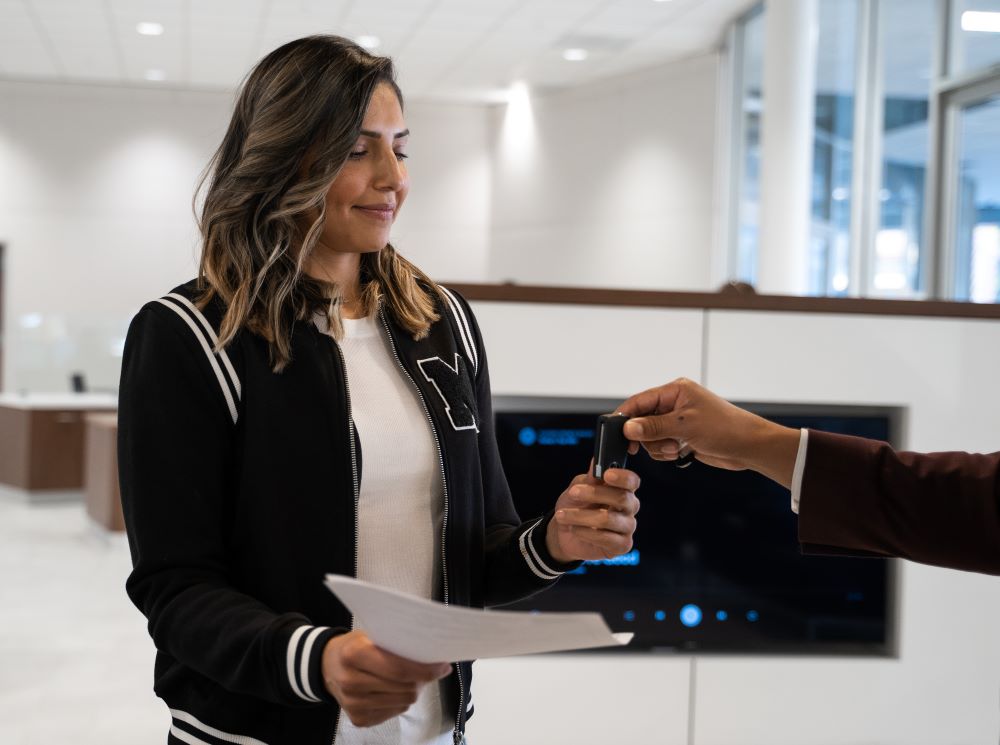What to Anticipate While Shopping at a Used Car Dealership
Posted Monday, Mar 18, 2024

Buying a used car can often save you money while providing a reliable mode of transportation. Whether you're a first-time buyer or looking to upgrade, understanding what to expect at a used car dealership is critical. This process involves research, knowing your budget, and familiarizing yourself with financing options.
Our goal is to prepare you for this experience, ensuring you feel confident and informed when making your decision. With the proper preparation, finding the perfect used car can be a straightforward and satisfying process.
Before You Go
When planning to visit a used car dealership, the groundwork you lay can significantly impact your buying experience and the deal you end up with.
This section focuses on the two critical preparatory steps: researching and preparing for your purchase and understanding your financing options.
● Research and Preparation
The first step in buying a used car involves thorough research and preparation. Begin by determining what type of vehicle suits your needs and budget. Consider factors such as size, fuel efficiency, and features you consider essential.
Once you have a clear idea of what you're looking for, research various models that fit your criteria and compare their market prices. This information will give you the knowledge needed to recognize a fair deal.
Additionally, assess your financial situation to set a realistic budget. Remember to account for additional costs beyond the purchase price, such as insurance, maintenance, and any immediate repairs the car may need. Setting a clear budget beforehand helps prevent overspending and ensures you can comfortably afford your new vehicle.
● Financing Options
Understanding your financing options is another critical step before heading to the dealership. Generally, you can secure a loan through a bank or dealership.
Each option has its benefits and drawbacks, and the best choice depends on your financial situation and credit score. Banks often offer competitive interest rates to those with good credit, but securing a bank loan requires approval before shopping.
On the other hand, financing through a dealership can be more convenient and sometimes the only option for those with less-than-ideal credit. Regardless of your route, it's essential to know your credit score and understand the terms of your loan, including the interest rate and monthly payments.
At the Dealership
Knowing what to expect at the dealership can significantly smooth out the process of buying a used car. This section will guide you through the initial visit, inspecting the vehicles, and understanding pricing and negotiations.
● First Impressions and Interactions
Upon arriving at a used car dealership, your first interaction will likely be with a salesperson. It's essential to communicate clearly what you're looking for in a used car.
Feel free to ask questions about the dealership's policies, vehicle availability, and pricing. A good dealership will be transparent, provide detailed information, and assist you in finding a suitable vehicle.
● Inspecting the Vehicles
Inspecting the vehicles is a critical step in the buying process. Check the car's exterior for any damage and the interior for wear and tear. It's also wise to look under the hood, even if you're not mechanically inclined, to spot any obvious issues.
Requesting the vehicle history report is an excellent practice to learn about past accidents or maintenance issues. Always take the car for a test drive to see how it handles and listen for any unusual sounds.
1. Understanding Pricing and Negotiations
The price tag on a used car is flexible. Understanding how pricing works can help you during negotiations. Dealerships often mark up prices to cover costs and ensure profit, so there's usually room to negotiate.
Research the market value of the vehicle you're interested in before discussing the price. Offer a reasonable starting point below the asking price but be prepared for counteroffers. Remember, the goal is to reach an agreement that benefits you and the dealer.
After the Purchase
Buying a used car from a dealership can be a significant decision with its considerations and potential issues post-purchase. You need to know here to ensure a smooth experience after driving off the lot.
● Post-Purchase Considerations
After purchasing a used car, several vital steps ensure your vehicle's longevity and performance. Here's what to consider keeping your car running smoothly and efficiently.
Finalizing Your Paperwork
Make sure all your documents are in order. This includes the title transfer, registration, and insurance. Promptly updating these documents will help you avoid legal and financial headaches.
Maintenance and Care
Regular maintenance is critical to extending the life of your used vehicle. Familiarize yourself with the car's maintenance schedule and stick to it. Also, consider setting aside a budget for unexpected repairs, especially if your vehicle is out of warranty.
Warranty and Service Contracts
Keep all related paperwork handy if your car comes with a warranty or purchased an extended service contract. Understand what is covered and for how long so you can take full advantage of these services if needed.
● Dealing with Potential Issues
Navigating potential issues after purchasing a used car requires awareness and prompt action. Learn how to identify and address problems to ensure your vehicle's longevity and performance.
Identifying Problems Early
Be alert to any differences in your vehicle's performance or noises. Early detection of issues can prevent more severe problems and expensive repairs later.
Where to Get Help
If you encounter problems, contact the dealership where you purchased the car. Many dealers offer limited warranties or may be willing to help resolve minor issues as a gesture of good customer service.
Seeking Repairs
Research and choose a reputable mechanic or repair shop for more significant issues. If the problem might be covered under warranty, check if you must use specific service providers not to void your coverage.
Wrapping Up Your Used Car Buying Experience
In conclusion, when you're well-informed and prepared, shopping at a used car dealership can be a positive experience. From understanding your budget to negotiating the best deal, every step is essential.
Remember to inspect the vehicle thoroughly and consider all financial aspects before deciding. Following the advice in this guide by Green Light Car Sales makes you more likely to find a car that fits your needs and budget. Contact them now to learn more!
